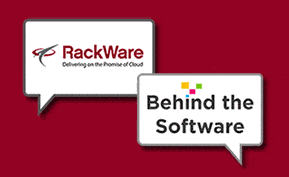Cloud Management
SLAs in the Cloud - A Deal Breaker?

The rising popularity of cloud-based software has many companies questioning whether on-premise solutions are a thing of the past. From a cost perspective, cloud computing makes sense: hardware requirements are minimal compared to onsite software, and many cloud-solution providers only bill for actual usage of the software, without charging an upfront fee. What’s more, cloud computing generally does not generate time- and resource-consuming implementation projects. What’s not to like about cloud computing?
Is the Cloud Right for You?
For many companies, the main question in determining whether cloud computing is right for them has to do with security. CFOs are often hesitant to host their financial data remotely. Similarly, many IT departments resist sacrificing a certain level of control and flexibility, which cloud computing requires. Besides security and cost, however, there is a third factor that should weigh into your decision of whether to move to the cloud: service level agreements (SLAs).
Traditional On-Premise SLAs
On-premise software packages allow companies to negotiate very specific service level agreements with their software providers to uphold performance and guarantee uptime. The very nature of an on-premise installation makes it possible to have SLAs that are highly tailored to meet one’s unique performance and availability requirements. However, that same level of detail rarely exists in a cloud-based solution that, by nature, is more of a catch-all solution.
The Reality of Cloud SLAs
Cloud-based solutions are shared resource platforms that offer a broad range of needs in their particular field. As a result, cloud vendors commonly offer a fixed set of performance metrics, designed to encompass the needs of a broader customer base. The philosophy behind this? If you cater to the specific needs of your customers, you hike up the customization requirements and the price and then the solution loses its value proposition.
The same goes for performance standards. While many cloud vendors have various safeguards in place to be able to make uptime and performance guarantees, the actual success of the software ultimately hinges on the internet and your network infrastructure. In theory, it’s possible to have a dedicated network for each particular customer, in which that customer would have control over mitigating any network failures. But not only does this leave the fact that failures could happen unresolved, it again cuts into the value proposition of cloud computing.
That being said, the cloud market is booming and seeing a lot of progress and new developments. As it matures, performance standards will continue to increase and the cost benefit of these solutions may outweigh the security and performance risks – as it already does for many businesses who have adopted cloud-based solutions.
Want to check out more information on cloud hosting and the top cloud management software solutions? We’ve compiled product reviews, expert advice and other premium content on our cloud management software research page. Here, you’ll find all of the information you need to choose the right cloud solution for your needs.






